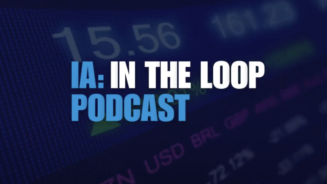With fee based advice spreading internationally and clients focussing more and more on the costs within their plans, are we as advisers at risk of our initial thoughts and suggestions being taken away and used by a client to go direct?
In a first meeting with a client it can be difficult to keep our cards close to our chest. We need to demonstrate the value of advice and outline the areas we can help them yet it’s becoming increasingly evident that some clients take snippets of conversation, google it and find a direct-to-market provider.
By doing so, they are putting themselves and their money at risk of being allocated incorrectly and managed without accounting for their individual and unique circumstances and objectives.
They’re also stepping away from the right to complain about poor advice, by taking all the risk and decision making upon themselves.
It is vital that we as advisers and the industry generally educate clients to value professional financial advice much like they do legal or accounting advice. Few people would use internet searches to write up an important contract and many don’t trust themselves even to submit their own tax return, so why would they to take out a long term pension or investment plan without an intermediary?
Serious changes
Recently, the government have made serious changes in the pension advisory market, insisting that the majority of defined benefit pension members receive regulated advice, so reducing the risk of clients jumping to take advantage of the flexi-access drawdown rules in order to fully encash valuable pensions.
However, the popular press has recently focussed upon the dissatisfaction of individuals not being able to ‘do it themselves’ and instead backed their complaints over not needing advice despite noting such an vital area for a person’s long term financial stability.
With increasing changes in legislation, taxation, new products becoming available, economic and market shifts; how is a client going to keep up when making decisions and managing accounts themselves? Not to mention preparing and adapting to their own personal circumstances, both the expected and unexpected.
Perhaps in a couple of years those DIY investors will realise financial planning is not so simple and turn to respect the need for professional, personal and bespoke long term financial advice.




